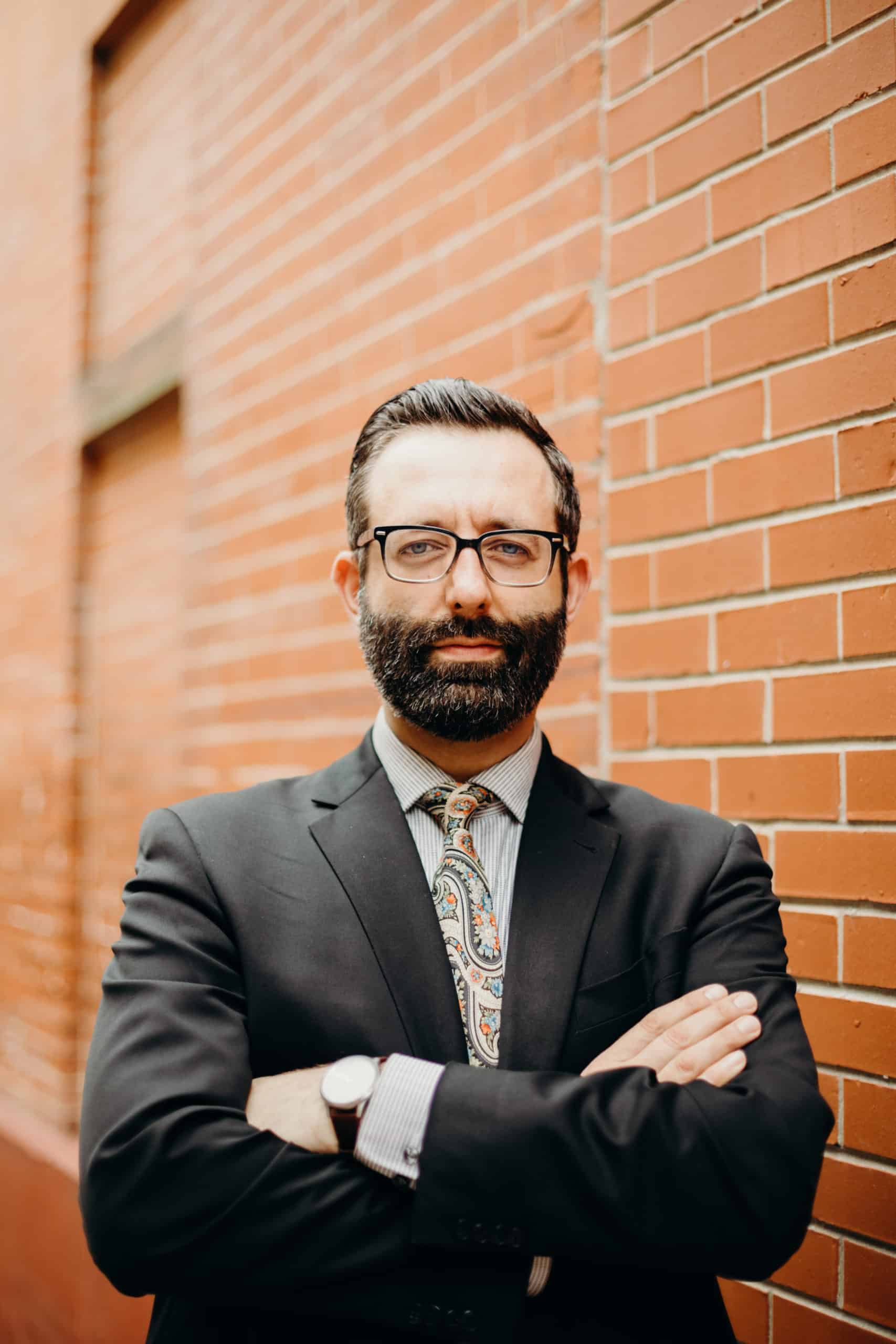
Understanding the Plenary Order of Protection process can be crucial for those seeking protection from domestic violence. These orders, granted by the courts, offer long-term protection to victims, making them an invaluable tool in safeguarding one’s safety. Navigating the legal system can be challenging, but with the right information, you can make informed decisions to use the tools of the judicial system to protect your rights and well-being.
Quick Answers
- A Plenary Order of Protection is a legal measure in Illinois that offers protection against domestic violence for up to two years.
- It is more formal than an Emergency Order of Protection and requires evidence, witnesses, and testimony during the hearing process.
- Violations can lead to serious consequences such as imprisonment or fines, making it essential to maintain compliance and obtain proper legal counsel throughout the entire process.
- Plenary Orders of Protection require advanced notice to the Respondent and the opportunity for the Respondent to be heard before the Court.
Understanding Plenary Orders of Protection
A Plenary Order of Protection in Illinois is a substantial protective measure for victims of domestic violence. It can remain in effect for up to two years, offering legal protection against further abuse. Protection orders, like this order, are not to be taken lightly; they carry the weight of the law and are enforceable by the police.
However, a court hearing is a significant and necessary step in obtaining a court order, specifically a Plenary Order of Protection. This is not just a formality, but a significant part of the process. The hearing ensures that all parties involved have a chance to:
- Make a presentation
- Provide evidence
- Compel testimony
- Cross-examine witnesses
- Present legal arguments
- Challenge the evidence presented by the other party
This process is meant to provide a fair opportunity for justice to be served.
If the respondent fails to appear at the plenary hearing, the court may grant a default judgment in favor of the petitioner. This emphasizes the need to offer the opportunity for all parties to be present at the hearing. Failure to do so may result in the judge granting the plenary order by default.
The Difference Between Emergency and Plenary Orders
Both Emergency and Plenary Orders of Protection serve to protect domestic violence victims. However, they differ significantly in their duration and the process of their issuance. An Emergency Protection Order, also known as an Emergency Order of Protection, is temporary and can be issued without the respondent’s physical presence or notice to the Respondent. They usually last for 14 to 21 days and are granted in a less formal proceeding.
On the other hand, Plenary Orders necessitate a hearing with notice and the opportunity for participation of both parties. Plenary protection orders provide a more permanent solution to the victims. These orders require a more formal and thorough evidentiary hearing process to ensure the fair administration of justice. If the Respondent cannot be located or served with the Petition for Plenary Order of Protection, alternate methods exist to satisfy the requirement of legally sufficient notice.
Upon the granting of an Emergency Order of Protection, a hearing date is scheduled to pursue a Plenary Order of Protection, which offers a more enduring level of protection that is allowed due to the Responding having legally sufficient notice and the opportunity to be heard. This highlights the difference between the two orders and their distinct roles in the protection process.
Steps to Obtain a Plenary Order of Protection
The process of securing a Plenary Order of Protection often starts with getting help from a domestic violence attorney. The attorney will guide you in completing the necessary Order of Protection documentation and filing a written motion with the Circuit Clerk, which will then be brought before an available judge at the local courthouse.
Part of this process involves detailing the alleged domestic abuse when applying for the protective order. This includes descriptions of patterns of:
- harassment
- abuse
- stalking
- intimidation
- physical harm
- neglect
- exploitation
An Order of Protection attorney can assist you in gathering and presenting this information effectively.
Once the paperwork is filed, it’s time to prepare for the plenary hearing. This involves:
- Gathering relevant evidence and documentation
- Organizing and labeling exhibits
- Preparing your testimony
- Considering which witnesses to call
- Getting ready to answer questions during the hearing.
Adequate preparation is necessary to safeguard yourself, your family members, or any other family member from possible harm.
Preparing for the Plenary Hearing
In a Plenary Hearing, legal representation is of tremendous importance. Having an attorney on your side who can effectively advocate for you and present your case increases your chances of a favorable outcome and ultimately your safety. An attorney can:
- Guide you in collecting documents and records
- Prepare your testimony
- Assist in assembling evidence
- Review your case for strengths and weaknesses
- Provide advice on legal strategies
- Ensure your paperwork is in order
- Provide support throughout the process
Part of this preparation involves reaching out to potential witnesses for the hearing. This involves:
- Identifying possible witnesses
- Gathering their contact information
- Explaining the purpose of the hearing
- Maintaining communication throughout the process
- Serving subpoenas as needed
This is an important step in securing a Plenary Order of Protection that may make a difference in the outcome.
The Plenary Protection Hearing: What to Expect
The Plenary Protection Hearing allows both parties to present their cases. The judge will then make a decision on granting the protection order based on the evidence and testimonies presented.
The structure of the hearing involves the following steps:
- The petitioner and the respondent present their evidence and call witnesses.
- The judge listens to the testimonies from each side and reviews the evidence.
- The judge makes a decision based on the evidence presented.
If the Plenary Order of Protection is granted, it generally remains valid for a maximum duration of two years.
During the hearing, both the petitioner and the respondent have the right to present their case, submit evidence, and be heard by the judge. This promotes fairness and justice for all parties involved.
Consequences and Restrictions Imposed by a Plenary Order
A Plenary Order of Protection may impose several restrictions on the respondent, including prohibiting all forms of contact with the petitioner. This includes:
- Electronic contact
- Physical contact
- Non-physical contact
- Verbal contact
- Written contact
- Contact through a third party.
- Non-verbal communication
Violations of the order include:
- Prohibited contact
- harassment
- stalking
- intimidation
- abuse
- non-compliance with any of the terms of the order
The law takes these violations seriously and has established stiff penalties for those who breach the order.
Breaching a Plenary Order of Protection can provide a basis to extend the Plenary Order of Protection and lead to severe consequences, including:
- Imprisonment
- Fines and costs
- Probation
- Mandatory counseling
- Further repercussions determined by the judge and the nature of the violation
These measures highlight the seriousness of these orders and the necessity to comply with them.
Importance of Legal Counsel in the Plenary Order Process
Legal counsel is vital during the Plenary Order process. Attorneys possess the requisite knowledge and experience to navigate the intricacies of the legal system, offering a strategic defense and robustly advocating for their client’s interests.
In the Plenary Order of Protection process, a lawyer:
- Represents the petitioner or respondent
- Provides expectations and legal advice
- Prepares and presents evidence
- Cross-examines witnesses
- Advocates for their client’s interests
This all-encompassing role is necessary for the protection of your rights and interests throughout the process.
Legal representation can considerably enhance the chances of securing a Plenary Order of Protection. Attorneys provide:
- Guidance through complicated paperwork
- Assistance in gathering substantial evidence
- Presentation of a strong case to the judge
- Dedicated advocacy for your rights and safety.
- Mitigating possible weaknesses of the claim
Modifying or Terminating a Plenary Order of Protection
Changing or terminating a Plenary Order of Protection requires scheduling a new court hearing with both parties present. This step is necessary when there are new laws or facts that come to light after the initial order has been granted or when significant changes in circumstances have occurred since the entry of the order.
However, terminating a Plenary Order is not a straightforward process. It requires adhering to the termination and renewal process as outlined in the Illinois Domestic Violence Act and its requirements as interpreted by the appellate courts and the Illinois Supreme Court. It is advisable to seek consultation with a legal professional during this process.
The documents needed for alteration or termination may vary by case or jurisdiction, making it important to get legal advice. The presence of both parties is an important component, and a court hearing will be arranged to review any requests for modification or termination.
Summary
In conclusion, Plenary Orders of Protection are crucial legal tools that offer long-term protection to victims of domestic violence. From understanding the difference between Emergency and Plenary Orders to preparing for the hearing, taking the necessary steps to present your case, and grasping the consequences of breaching these orders, it’s clear that knowledge and preparation are key. Remember, having legal counsel can significantly enhance your chances of securing a Plenary Order, ensuring your rights and safety are protected to the maximum extent permitted by law.

Schedule a Consultation with Attorney Zachary Townsend
Call or text today – (815) 200-8802
Frequently Asked Questions
What is a plenary hearing in Illinois?
A Plenary Hearing in Illinois is a hearing where both the petitioner seeking safety and the respondent accused of abuse are present and have the opportunity to be heard before a judge, who then issues or denies the Plenary Order based on the presentation of evidence.
How do I get around an order of protection?
If you disagree with the terms of an order of protection, the best way to address it is by contesting it in court with the help of an attorney. Violating the terms of a protective order is a serious criminal offense, so it’s important to handle the matter responsibly. You also may seek a modification to the terms of an existing Order of Protection.
What happens if petitioner violated order of protection Illinois?
In Illinois, violating an order of protection is a criminal offense. If convicted, a person can be sentenced to jail time and fined. Repeated violations or those made after conviction of a serious crime could result in a felony charge, the requirement of mandatory mental health treatment, or cause the offender to be subject to G.P.S. monitoring by the Court.
What is a Plenary Order of Protection and how long does it last?
A Plenary Order of Protection is a legal measure that offers protection to victims of domestic violence, typically lasting two years.





